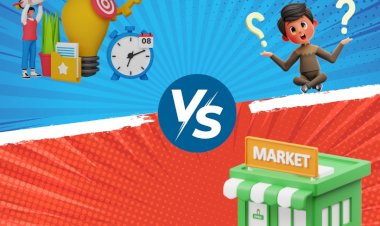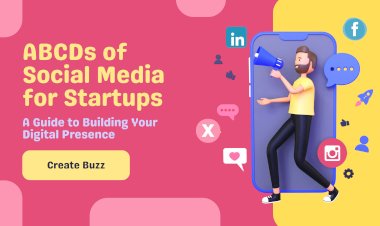How personal branding can boost your Startups
Personal branding is a powerful tool for startup founders looking to make a mark in their industry. By developing a strong personal brand, entrepreneurs can build trust and credibility, attract investors, and create a loyal customer base. Effective personal branding highlights unique strengths and values, making it easier to stand out in a crowded market and connect with the right audience.

In the fast-paced world of startups, where innovation and agility are key, building a personal brand can be a powerful tool for entrepreneurs. Personal branding is not just about self-promotion; it’s about establishing a unique identity and credibility that can drive your startup to new heights.

Why Personal Branding Matters for Startups
- Building Trust: People connect with people, not companies. By establishing a strong personal brand, you create a sense of trust and authenticity that resonates with potential customers, investors, and partners.
- Differentiation: In a crowded market, a compelling personal brand sets you apart from the competition. It showcases what makes you unique and why others should believe in your startup.
- Networking Opportunities: A well-crafted personal brand opens doors to valuable networks and relationships. Whether it's through speaking engagements, social media presence, or industry events, your brand can attract opportunities that might otherwise be out of reach.
How to Build a Personal Brand That Boosts Your Startup
To build a personal brand that effectively boosts your startup, start by defining your brand identity. This involves identifying your core values, strengths, and passions, and clarifying your mission and vision. Understanding what you stand for allows you to develop a consistent message that aligns with your startup's goals, ensuring that your personal brand reflects your business's purpose and direction.
Leverage social media by choosing platforms that best align with your target audience. Use these platforms to share valuable content that highlights your expertise and insights, and make it a point to engage with your audience by responding to comments, participating in discussions, and sharing your journey as an entrepreneur. This active presence helps in building a community around your brand and fostering connections with potential customers and partners.
Content creation is another critical aspect of personal branding. Consider writing blogs, creating videos, or starting a podcast to share your knowledge and experiences. Position yourself as a thought leader in your industry by providing actionable advice and unique perspectives. It's important that the content you produce consistently reflects your personal brand and ties back to your startup's mission, reinforcing your brand identity with every piece of content you share.
Public speaking and networking are also powerful tools for building your personal brand. By attending industry events, conferences, and webinars as a speaker or panelist, you can share your startup's story and your personal journey, inspiring others and attracting attention to your business. Networking at these events can lead to valuable collaborations, partnerships, and even investor interest, further boosting your startup's growth.
Finally, consistency is key to a strong personal brand. Ensure that your brand message remains consistent across all platforms—both online and offline. Regularly update your content, actively engage with your audience, and stay involved in your industry. Consistency builds recognition and strengthens your brand over time, making it a reliable asset for your startup's success.
Case Studies: Entrepreneurs Who Boosted Their Startups Through Personal Branding
- Elon Musk (Tesla, SpaceX): Musk's personal brand is synonymous with innovation and futuristic thinking. His active social media presence and public persona have created a cult following that extends beyond his companies.
- Sara Blakely (Spanx): Blakely's personal story of resilience and self-belief has made her a relatable and inspiring figure. Her personal brand has played a crucial role in the success of Spanx, as she connects deeply with her audience.
Conclusion
In the startup world, your personal brand is more than just a professional asset; it’s a strategic tool that can boost your startup’s growth, attract the right opportunities, and set you apart in a competitive landscape. By investing in your personal brand, you’re not just promoting yourself—you’re laying a strong foundation for your startup’s success. So, start building your brand today, and watch as it propels your startup to new heights.

 Yati Garg
Yati Garg 






















